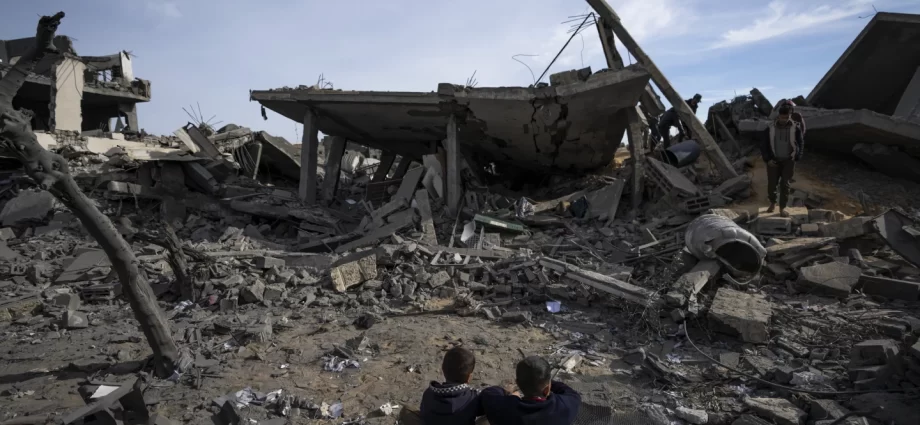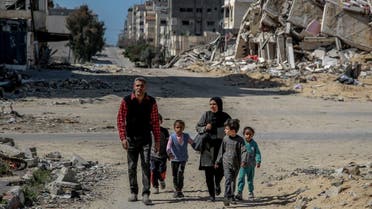No change on ground in Gaza since UN ceasefire vote: MSF
At least 12 Palestinians killed in Israeli strike targeting Rafah: Health officials
The MSF medical charity lamented Thursday that nothing had changed on the ground in war-ravaged Gaza since the United Nations Security Council resolution this week demanding an “immediate ceasefire.”
After more than five months of war, the UN Security Council for the first time Monday demanded an immediate ceasefire in Gaza after Israel’s ally the United States, which vetoed previous drafts, abstained.
That resolution demanded an “immediate ceasefire” for the ongoing Islamic holy month of Ramadan, leading to a “lasting” truce.
But since then, “we haven’t seen any change after this resolution on the ground,” Christos Christou, MSF’s international president, told AFP in an interview.
“We haven’t seen any impact in… people’s lives there every day; we haven’t seen an impact in our world, (and the) ways of delivering the humanitarian aid,” he said.
“The situation remains the same.”
And Christou stressed that MSF’s demands also remained unchanged.
What was needed, he said, was an immediate and lasting ceasefire, a halt to all attacks on medical installations and personnel, and “unhindered humanitarian aid in Gaza.”
For now, he acknowledged that “our efforts are just a little drop in the ocean of needs.”
MSF still has local and international staff working in the few hospitals that are still functioning in Gaza.
The organization is among other things working to care for women after they undergo a caesarian section.
He pointed out that in many cases, women who gave birth via a caesarian section were “literally kicked out of the hospital after a couple of hours because there were no beds.”
“MSF has increased the capacity of beds in order to offer at least some quality of care to these women,” he said.
The war began with Hamas’s unprecedented October 7 attack that resulted in about 1,160 deaths in Israel, mostly civilians, according to an AFP tally based on Israeli official figures.
Militants also took about 250 hostages. Israel says about 130 captives remain in Gaza, including 34 presumed dead.
Israel’s retaliatory campaign has killed at least 32,552 people, mostly women and children, according to the health ministry in Hamas-run Gaza
Christou said MSF was “extremely worried” about Israeli plans to push its ground offensive into Rafah, Gaza’s southernmost city which is packed with some 1.5 million people, many of them displaced from other parts of the territory.
“This would be really catastrophic.”


